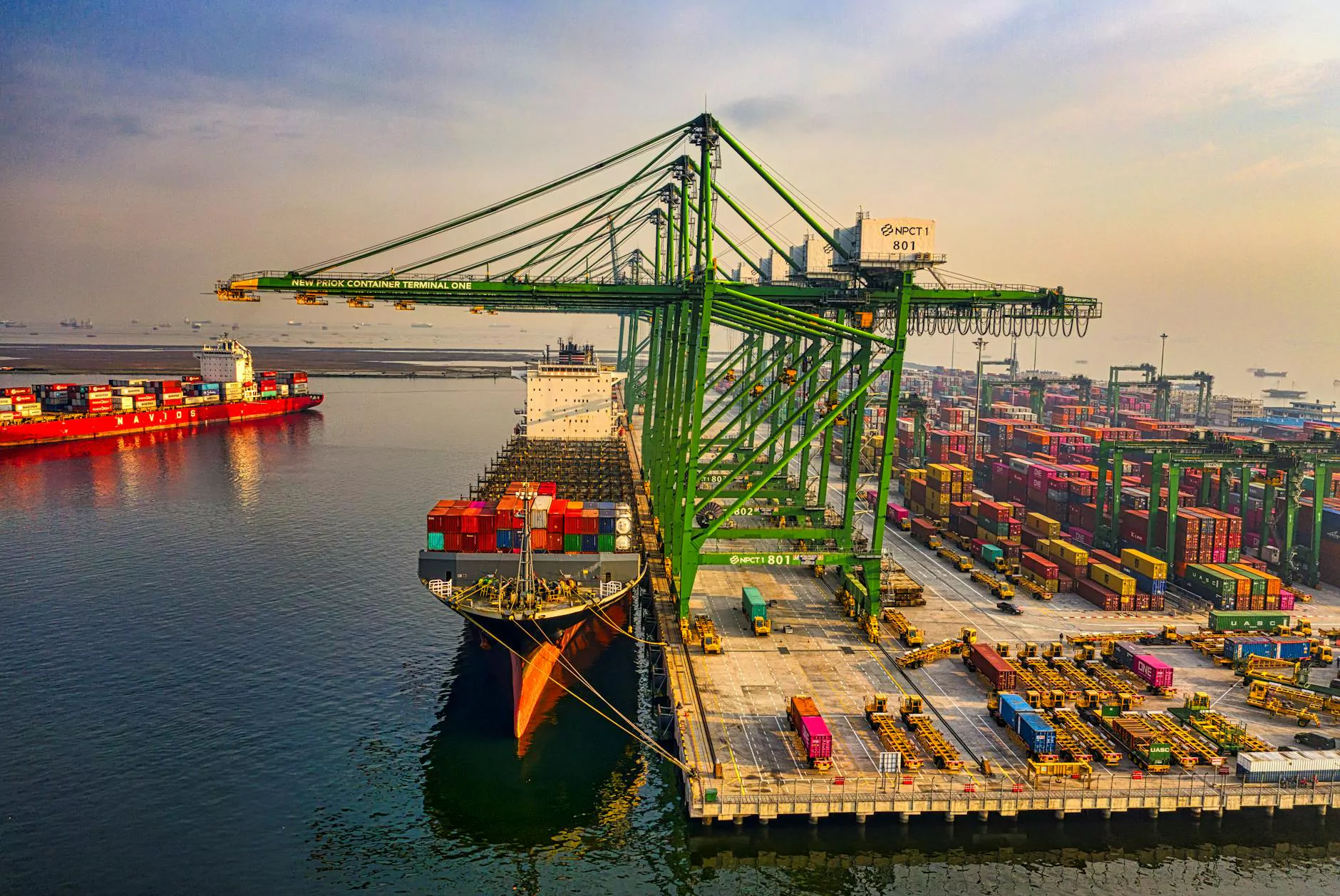Enhancing Your Shipping Experience with the **Air France Freight Tracker**

In the fast-paced world of business logistics, efficient shipping solutions are paramount. When it comes to air freight, Air France has long been a reliable name in the industry. By incorporating the Air France Freight Tracker into your shipping process, you can significantly enhance your supply chain management. This comprehensive article provides a deep dive into how the freight tracker works, its benefits, and essential practices that can contribute to your business success.
The Importance of Freight Tracking in Modern Logistics
In today's global economy, businesses rely on effective shipping solutions to maintain efficiency and meet customer demands. The ability to track freight in real-time provides invaluable data that can assist in making informed decisions. Here’s why tracking is essential:
- Real-Time Monitoring: Access to real-time locations and status updates allows businesses to stay informed about their shipments.
- Increased Transparency: Keeping customers in the loop with tracking information builds trust and satisfaction.
- Operational Efficiency: Early notifications of delays or issues can help in devising contingency plans.
- Cost Reduction: Enhanced visibility into shipping processes can lead to improved cost management.
Understanding the Air France Freight Tracker
The Air France Freight Tracker is an innovative tool designed to provide businesses with detailed insights on their air freight shipments. Utilizing advanced technology, this tracker allows users to monitor their shipments from the moment they leave the shipping center until they arrive at their destination. Here are some key features of the tracker:
- Easy Access: The tracker is accessible via the Air France Cargo website, enabling users to conveniently check the status of their items.
- Detailed Updates: Receive comprehensive updates on your shipment’s progress, including departure and arrival times, transit points, and estimated delivery dates.
- User-Friendly Interface: The system is designed for ease of use, making it simple for anyone to navigate and find their necessary information.
- Mobile Compatibility: With an increasing number of shipping professionals on-the-go, the tracker is optimized for mobile devices.
How to Effectively Use the Air France Freight Tracker
Using the Air France Freight Tracker effectively can significantly streamline your shipping operations. Below are some best practices:
1. Set Up Notifications
One of the most beneficial features of the freight tracker is the ability to set up notifications. By doing this, you can receive alerts straight to your inbox or mobile device, keeping you informed about any changes in the status of your shipments.
2. Monitor Multiple Shipments
If your business engages in sending multiple shipments on a regular basis, the tracker allows you to monitor various shipments simultaneously. This feature can save time and enable you to manage logistics more effectively.
3. Utilize Reports and Analytics
Leverage the reporting tools available within the freight tracker. By analyzing past shipment data, you can identify patterns, optimize routes, and improve overall shipping strategies.
4. Communicate with Stakeholders
Share tracking information with relevant stakeholders, such as vendors and customers. This transparency not only improves customer satisfaction but also facilitates better communication within your supply chain network.
Benefits of Using Air France Cargo Services
Choosing Air France's cargo services and utilizing the Air France Freight Tracker can bring multiple advantages to your business:
- Global Reach: Air France operates an extensive global network, making it easier for businesses to reach international markets.
- Diverse Shipping Options: The airline offers a range of cargo solutions tailored to different business needs—from perishables to heavy goods.
- Reputation for Reliability: With years of experience in air freight, Air France is known for its commitment to safety and timely deliveries.
- Sustainability Initiatives: Engaging with a company like Air France that prioritizes sustainable practices can enhance your business’s corporate responsibility narrative.
Shipping Centers and Their Role in Logistics
Shipping centers are pivotal in the logistics chain. They serve as the hub where goods are consolidated, sorted, and dispatched to their final destinations. By understanding their importance, businesses can optimize their logistics operations. Here’s an overview of how shipping centers contribute:
- Efficient Processing: Shipping centers are equipped with advanced technologies that streamline handling and processing times.
- Cost-Efficiency: Consolidating shipments through a central location can significantly reduce transportation costs.
- Improved Inventory Management: These centers often provide warehousing services, allowing businesses to better manage their inventory levels.
- Quick Turnaround: The speed at which goods are processed and sent to their next destination is crucial for maintaining delivery schedules.
The Impact of Transportation in Business
Transportation has a profound impact on business operations. Efficient transportation solutions help businesses maintain competitive advantages by ensuring timely deliveries and reducing operational costs. Here are some aspects to consider:
- Accessibility: Efficient transportation systems improve accessibility to global markets.
- Cost Management: Understanding transportation costs influences pricing strategies and overall profitability.
- Supply Chain Synchronization: Transportation plays a critical role in aligning various supply chain components, ensuring smooth operations.
- Technology Integration: Today’s transportation options increasingly rely on advanced technology for better route planning and efficiency.
The Importance of Airports in Logistics
Airports are essential components of global logistics. They serve as major nodes for freight operations, connecting various markets and facilitating international trade. The role airports play includes:
- Speed: Air cargo is one of the fastest modes of transport available, crucial for time-sensitive shipments.
- Global Connectivity: Major airports serve as gateways, linking various regions and countries.
- Customs and Regulations: Efficient customs processes at airports can significantly reduce delays in logistics operations.
- Infrastructure: Airports often have specialized infrastructure and facilities to handle cargo, ensuring that goods are safely managed and transported.
Improving Your Business with Data Insights
Utilizing data insights from the Air France Freight Tracker can considerably enhance your operational strategies. It allows you to:
- Analyze Performance: By reviewing shipping metrics, businesses can assess operational efficiency and identify improvement areas.
- Adjust Strategies: Data-driven insights can inform necessary adjustments in shipping strategies, enhancing overall performance.
- Forecast Demand: By understanding shipping trends, businesses can better predict future demand and adjust inventory levels accordingly.
- Enhance Customer Experience: Offering detailed insights and updates boosts customer relationships and loyalty.
Conclusion: Empower Your Logistics with the Air France Freight Tracker
The Air France Freight Tracker is more than just a tracking tool; it's an integral part of modern logistics that empowers businesses to enhance efficiency, provide transparency, and optimize operations. As you consider your transportation and shipping strategies, incorporating advanced tracking solutions such as those offered by Air France will ensure you remain competitive in the ever-evolving marketplace. By leveraging the features and insights provided, you not only enhance your supply chain resilience but also set the stage for sustained business growth. Embrace the innovation and reliability that the Air France Freight Tracker delivers, and watch your shipping efficiency soar.








